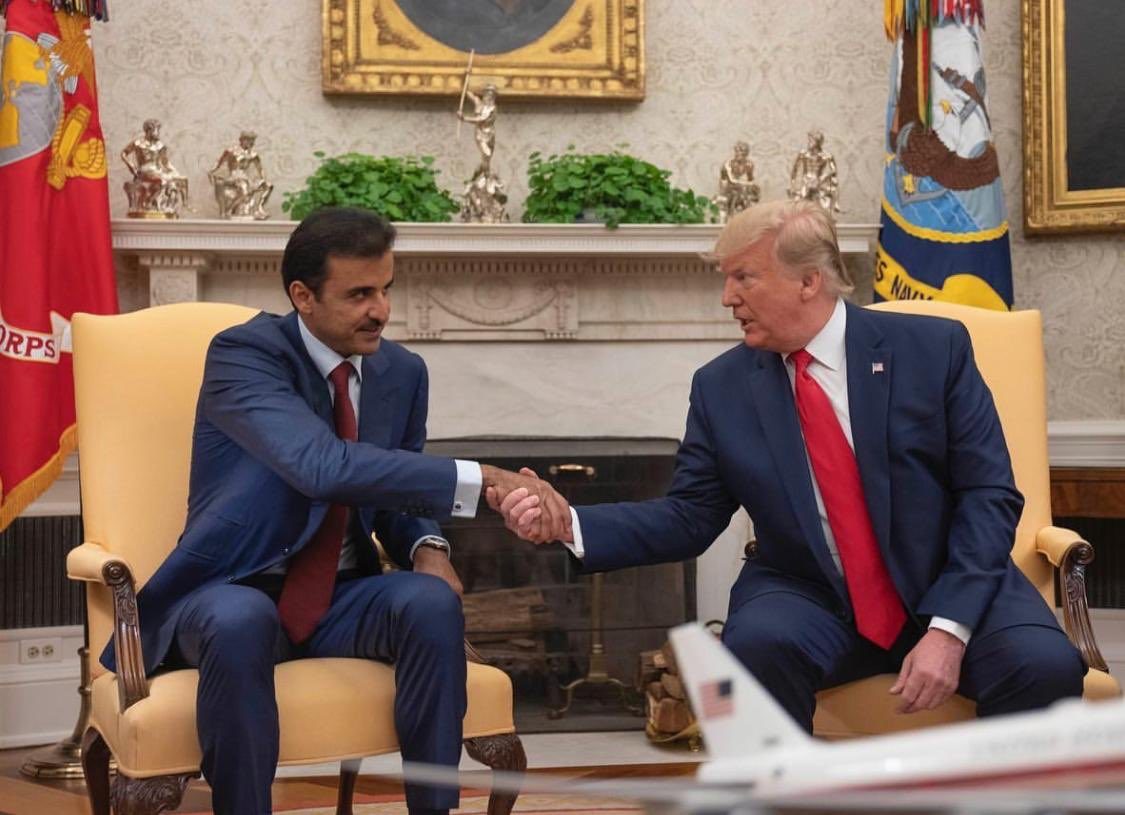Meshal-Al Thani, Qatar’s ambassador to the United States, sees three easy steps to help heal the GCC rift.
Recent diplomatic negotiations show encouraging signs of the end of the Gulf crisis, according to Meshal Al-Thani, Qatar’s ambassador to the United States of America.
“We have some encouraging signals from the foreign minister of Saudi Arabia, and we been seeing Secretary Pompeo’s last visit to push forward, and we have seen also today some statements from the minister of foreign affairs of Kuwait, and Secretary Pompeo, mentioning that they are supporting the Kuwaiti mediation. So we are optimistic,” Al-Thani said to Al-Monitor.
The ambassador emphasised Qatar’s commitment to ending the blockade if all parties are willing to negotiate without preconditions, given the statements from the Saudi foreign minister and Secretary Pompeo.
“If we can put these [conditions] on the side and come to the table with no conditions, respecting each other, respecting the sovereignty of each other, and talk about the real big grievances, if there are any, put them forward,” he said, calling for the blockading quartet to ditch their list of 13 demands.
“Qatar is willing to look into them and work with our neighbours to resolve this matter. At the same time, we also in Qatar have some concerns about the behaviour of certain Gulf countries, so this also has to be raised during the meeting,” he added.
He also emphasised the importance of finding a resolution to the blockade as part of a successful American foreign and Middle East policy.
Read also: For the second time, Saudi FM says Riyadh wants an end to GCC crisis
“I think it is very important that the US and the Gulf Cooperation Council always work together and align policies. So the fact that today we don’t have a functioning Gulf Cooperation Council is not going to be helpful to the United States,” Al Thani said.
The Trump Administration has also been keen on trying to make other accomplishments in what appears to be the President’s final weeks in office, with more efforts to resolve other issues, including the GCC Crisis.
In a recent statement by US National Security Advisor, Robert O’Brien, he expressed hope that Saudi and Bahraini air space would open for Qatar Airways flights within “70 days”.
“We felt that solving the air link issue, where Qatar Airways is able to fly over Saudi and Bahraini airspace is an important first step in solving that rift. I would like to see that done before, if we end up leaving the office, the next 70 days,” he said.
O’Brien added that resolving the crisis serves America’s interest and that it will bring “real economic opportunities across the Middle East”.
Speaking to Al-Monitor, Al-Thani said Qatar can achieve a lot with the incoming Biden administration, especially in stabilising the region.
“I think Qatar could be helpful to the Biden administration in different situations, in different areas, where it could work with the United States to defuse tension and stabilise certain countries in our region. And they can find in us a reliable partner with a proven track record. We will continue to work with the United States to advance the stability of our region, which is in the national interest of our countries and the United States,” he said.
Al-Thani said that three specific issues would help heal the GCC rift: opening up the blockading countries’ airspaces for travel, allowing Qataris to visit their families in the blockading countries and allowing Qataris to travel to Saudi Arabia for pilgrimage.
“These three issues could be a very quick win for the Biden administration when it comes to the Gulf rift,” Al-Thani said.
Read also: ‘No chances’ of the blockade ending soon says UAE official after hopes of possible breakthrough
The Gulf Crisis began in June 2017 when Saudi Arabia, UAE, Bahrain and Egypt cut all ties with Qatar after the official state news agency was hacked and published false quotes attributed to Qatar’s Amir Sheikh Tamim bin Hamad Al Thani.
Despite encouraging statements from Saudi Arabia and the United States, the UAE has taken a hardline stance with its ambassador to Washington, Yousef Al-Otaiba recently saying there is “no chance” of the blockade ending anytime soon.







